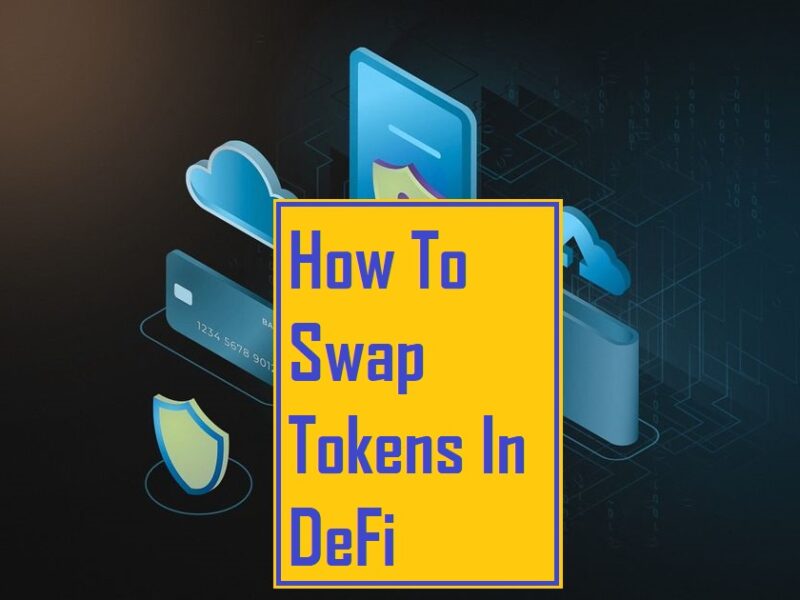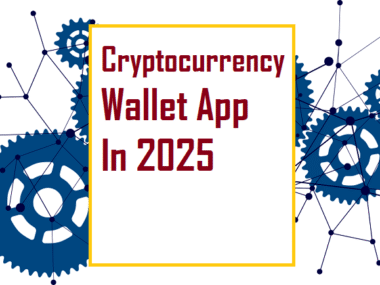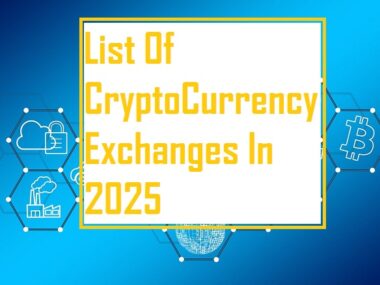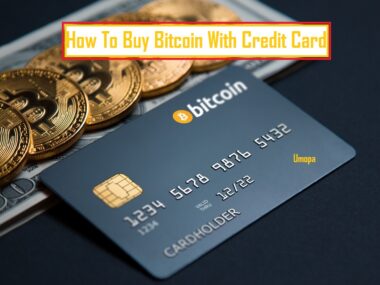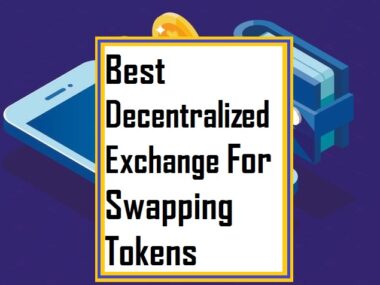The world of Decentralized Finance (DeFi) has unlocked a range of opportunities for cryptocurrency users. One of the most popular activities in DeFi is token swapping, which allows users to exchange one cryptocurrency for another directly through decentralized exchanges (DEXs). Unlike traditional exchanges, DEXs provide users with full control over their assets while ensuring fast, low-cost transactions.
In this article, we will guide you through the process of swapping tokens in DeFi. Whether you are a beginner or an experienced crypto enthusiast, this guide will provide you with the necessary tools and knowledge to swap tokens seamlessly on Ethereum-based platforms like Uniswap, SushiSwap, and others.
By the end of this article, you will have a clear understanding of how token swaps work in the DeFi ecosystem and how you can maximize your crypto portfolio by efficiently swapping tokens.
What is Token Swapping in DeFi?
Token swapping refers to the process of exchanging one cryptocurrency for another. In DeFi, token swaps occur through decentralized exchanges (DEXs), which are platforms that allow users to trade tokens directly with each other without the need for a centralized authority.
For instance, you can swap Ethereum (ETH) for Uniswap (UNI) or DAI, or even trade stablecoins for other DeFi tokens. The benefit of token swapping in DeFi is that it is decentralized, meaning the process is conducted peer-to-peer, without the need for a middleman like a bank or exchange.
Unlike traditional exchanges, DeFi token swaps offer:
- Full control over your funds: With DeFi token swaps, you keep control of your private keys and crypto assets at all times.
- Lower fees: Swapping tokens on decentralized platforms usually incurs lower fees than traditional centralized exchanges.
- Access to a wider range of tokens: DEXs often support tokens that may not be listed on centralized exchanges, especially newer or niche DeFi projects.
Benefits of Swapping Tokens in DeFi
- Decentralization: By swapping tokens on a DeFi platform, you avoid relying on centralized institutions, meaning you maintain control over your funds.
- Privacy and Security: Your transactions are executed on a blockchain, making them secure and transparent. Additionally, DeFi platforms don’t require KYC (Know Your Customer) processes, ensuring your privacy.
- Access to More Tokens: Many DeFi platforms offer a broader range of tokens, including ERC-20 tokens and DeFi-specific tokens, that may not be available on traditional exchanges.
- Low Fees: DeFi platforms typically have lower transaction fees compared to centralized exchanges. This is because there are no intermediaries in the process.
How to Swap Tokens in DeFi: Step-by-Step Guide
Swapping tokens in DeFi is relatively easy once you know the steps involved. Here is a comprehensive, step-by-step guide to swapping tokens on decentralized platforms.
Step 1: Set Up a Compatible Wallet
Before you can swap tokens, you need to set up a wallet that supports DeFi tokens and can interact with decentralized exchanges. Some of the most popular wallets for DeFi are:
- MetaMask: A browser extension and mobile wallet that supports Ethereum-based assets and integrates easily with decentralized exchanges like Uniswap and SushiSwap.
- Trust Wallet: A mobile wallet that supports a variety of cryptocurrencies, including DeFi tokens, and connects seamlessly with DeFi protocols.
- Coinomi: A multi-currency wallet with support for DeFi tokens and decentralized applications (dApps).
Once you have set up your wallet, fund it with the tokens you plan to swap. Most commonly, you’ll need Ethereum (ETH) or stablecoins like DAI, USDT, or USDC to swap for other tokens.
Step 2: Connect Your Wallet to a Decentralized Exchange (DEX)
Next, you need to connect your wallet to a decentralized exchange. There are many DEXs available in the DeFi space, but some of the most popular ones are:
- Uniswap: One of the largest and most trusted Ethereum-based decentralized exchanges.
- SushiSwap: A fork of Uniswap, SushiSwap offers many of the same features with additional benefits.
- PancakeSwap: A popular Binance Smart Chain (BSC)-based DEX that allows for faster and cheaper swaps compared to Ethereum-based platforms.
To connect your wallet to a DEX:
- Open your preferred DEX (e.g., Uniswap, SushiSwap).
- Look for a “Connect Wallet” button, usually located in the top right corner of the website.
- Select your wallet (e.g., MetaMask or Trust Wallet) and approve the connection.
Step 3: Choose the Tokens You Want to Swap
After successfully connecting your wallet to the DEX, you can begin the token swap process:
- Select the token you want to swap from the dropdown menu on the DEX interface.
- Enter the amount you want to swap. For example, if you want to swap ETH for USDT, select ETH from the first dropdown, and USDT from the second dropdown.
- The DEX will show you the estimated amount of tokens you will receive in return, including the current exchange rate and transaction fees.
Step 4: Confirm and Execute the Swap
Once you have selected the tokens you wish to swap and reviewed the details:
- Click the “Swap” button.
- A confirmation screen will appear, displaying the estimated transaction costs and the amount of tokens you’ll receive.
- If everything looks correct, confirm the transaction in your wallet.
- Depending on network congestion and transaction fees, your token swap may take a few moments to complete. Once confirmed, the tokens will appear in your wallet.
Step 5: Track Your Transaction
After swapping your tokens, you can track the transaction through the blockchain. Most DEXs, such as Uniswap and SushiSwap, provide a transaction hash (TXID) that you can use to check the status of your swap on a blockchain explorer (e.g., Etherscan for Ethereum-based tokens).
Best DEXs for Token Swapping in DeFi
1. Uniswap
Uniswap is one of the most widely used Ethereum-based DEXs, allowing users to swap a variety of ERC-20 tokens directly from their wallets. It operates using an Automated Market Maker (AMM), which uses liquidity pools to facilitate token swaps without the need for an order book.
- Key Features:
- Supports ERC-20 tokens and a wide range of DeFi assets.
- Provides a user-friendly interface with fast transaction processing.
- Integrates with most DeFi wallets, including MetaMask and Trust Wallet.
2. SushiSwap
SushiSwap is a decentralized exchange and AMM built on Ethereum and Binance Smart Chain (BSC). It offers the same features as Uniswap but with additional features like yield farming and staking opportunities.
- Key Features:
- Supports both Ethereum and Binance Smart Chain (BSC) assets.
- Offers yield farming and staking rewards for liquidity providers.
- Governance tokens that allow users to participate in the protocol’s decisions.
3. PancakeSwap
PancakeSwap is a decentralized exchange built on the Binance Smart Chain (BSC). It provides faster and cheaper transactions compared to Ethereum-based platforms, making it a popular choice for users who want to avoid high gas fees.
- Key Features:
- Fast and low-fee swaps on Binance Smart Chain (BSC).
- Yield farming, staking, and lotteries for additional rewards.
- Integration with Trust Wallet and MetaMask.
Risks and Considerations When Swapping Tokens in DeFi
While DeFi offers numerous benefits, there are risks that users should be aware of:
- Impermanent Loss: If you provide liquidity to a liquidity pool, there’s a risk of impermanent loss if the value of the tokens you’re providing changes significantly.
- Smart Contract Vulnerabilities: Since DeFi protocols operate via smart contracts, bugs or vulnerabilities in the code could expose you to the risk of losing your funds.
- High Transaction Fees: Ethereum-based DeFi platforms may have high gas fees, especially during periods of high network congestion. Be mindful of fees when swapping tokens.
How to Swap Tokens in DeFi Securely
Swapping tokens in DeFi is a straightforward process when you have the right tools and knowledge. By using a trusted DeFi wallet like MetaMask or Trust Wallet, and engaging with well-established DEXs like Uniswap and SushiSwap, you can easily exchange one cryptocurrency for another and participate in DeFi activities.
To swap tokens securely, ensure that you:
- Use a trusted wallet and secure your private keys.
- Understand the transaction fees and slippage involved.
- Double-check all details before confirming the swap to avoid errors.
By following these steps and tips, you can confidently engage with the DeFi ecosystem and make the most of your cryptocurrency assets.
